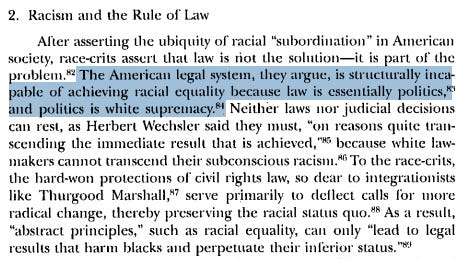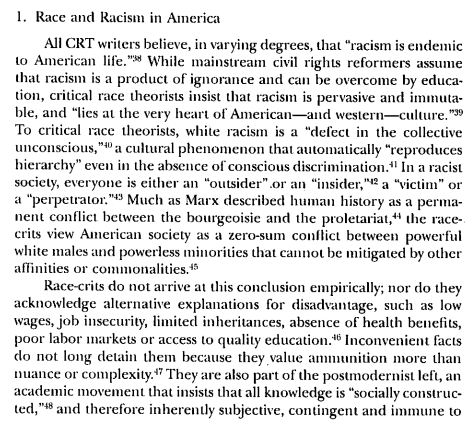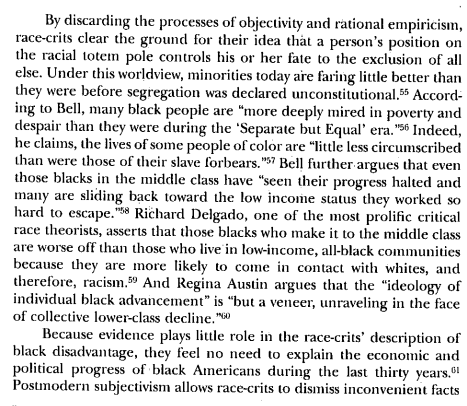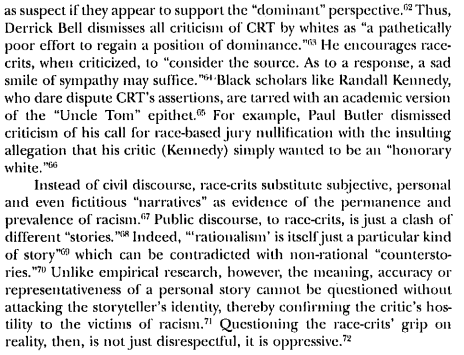Pulling Back the Curtain On PRX's Law Firm
Plus: Why Do Interns Need to be Recent Grads and a Reminder That iHeartMedia Owns Inside Radio

It’s February, the worst month of the year, the ideal month for depressing stories about things that make me want to scream.
Let us begin.
Pulling Back the Curtain on PRX’s Law Firm
Recently, a reader pulled my attention to a thread on Twitter that began like this:
Last year, the administration at University of Massachusetts Boston hired the law firm Prince Lobel to run an assessment of its Africana Studies department. Some of you may remember that Prince Lobel is also the law firm that was hired by audio distributor PRX after an employee accused the organization of fostering a racist workplace. (If you are unfamiliar with what happened in that case, check out my three-part series on the matter.)
After reading the whole Twitter thread, I reached out to Melnick, who also happens to be the vice president of the faculty staff union at UMB, to find out more. Over the phone, he shared the following story:
The Africana Studies department has had a hard time keeping people; it’s been underfunded for years. Last year, the department had planned to do a job search for two open positions and the dean canceled it. We were then informed that the administration had hired a law firm to assess the department. No one had asked for this — not anyone in the faculty, nor any students.
At a labor management meeting this past fall, after the executive summary of the report was released, I asked the provost about the timing of the work. He explained that while the law firm's full-bore investigation began in April of 2022, the administration —unbeknownst to faculty — had been in conversation with them as early as January. No input was solicited from members of the department itself with regard to the investigation's scope or objectives.
According to literal receipts, which I have seen, our relatively poor state school paid at least $162,000 to Prince Lobel for the work, which has resulted in the administration deposing the chair of the department — leaving it with only one full-time tenured professor — and taking over the job search. Meanwhile, the administration has been rebranding our school as an “anti-racist” organization.
(Note: according to this FAQ, the cost of the assessment may be closer to a quarter of a million dollars.)
Let’s review: the UMB administration met with Prince Lobel in secret, then launched an assessment of its Africana Studies department, and in doing so, removed all agency from the people being assessed (adding weight to this last point, in a letter to the administration, a retired UMB professor wrote that the department “does not deserve — and indeed no academic department deserves — to be treated in such an autocratic manner and given little to no chance to chart its own fortunes.”). Similarly, according to my reporting, PRX employees were deprived of the opportunity to provide any input into the investigation’s process and scope, a decision that widened the divide between management and employees and in some cases, became the reason people decided to quit.
Of course, I realize that this pattern, in which law firms descend upon media companies to defend against allegations of racism and/or sexism, weaken their unions, quell labor complaints, etc., is common and outcomes are often predictable.
But for me, what was less predictable — at least until now — was what the law firms on the other side of these investigations are about — are they diverse themselves? What matters to them? With these questions in mind, I decided to take a closer look at Prince Lobel.
Law firms aren’t going away, so we might as well understand what we’re dealing with, right?
So here we go —
Prince Lobel is overwhelmingly made up of non-Black partners. According to my reporting, the number of Black partners at Prince Lobel is under six percent of the total number of partners at the firm (and that’s a generous estimate).
Not only are Prince Lobel partners overwhelmingly non-Black (and mostly white), but all Black partners at the firm are men. There is not a single woman of color, who is also a partner, working at Prince Lobel today. For the sake of accuracy, you should know that when PRX hired the firm, there was one Black female partner on staff, a transportation attorney named Paige Scott Reed, but she was not assigned to the PRX investigation.
Reed recently left the firm, but had she been assigned to the PRX case, I’m doubtful that it would have changed the outcome. For one thing, prior to joining Prince Lobel, the Boston Herald reported that “minority groups” felt Reed was “an obstacle in working … to resolve civil rights violations” during her tenure with the Massachusetts Department of Transportation. And for another, she was representing Prince Lobel, and all that comes with that.
So PRX hired Prince Lobel, a firm with only one WOC partner in the entire firm at the time, to lead an investigation into a Black woman’s claims that she was one of multiple Black women who had left an organization due to systemic racism. This feels preposterous — like a joke, or as a former PRX employee put it to me months ago, a farce.
Back to the present day, while Prince Lobel employs zero WOC partners, there are a number of non-WOC female partners at the firm. I took a look at how many women are listed within practices that might impact those who work in audio. (Please note, I recognize that it’s possible to misgender someone by simply looking at them, so these are admittedly guesses.) Out of 11 partners on the “internal investigations” team, one appears to be a woman. Out of 23 partners on the “business litigation” team, one appears to be a woman.
And here’s what the “media, publishing and first amendment” practice looks like:
Of five partners on the media team, none of them are women. I guess that’s all I have to say about that…
Well, except for the fact that in 1999 Jeffrey J. Pyle (top left) authored a 41-page piece for the Boston College Law Review titled “Race, Equality and the Rule of Law: Critical Race Theory’s Attack on the Promises of Liberalism,” which has been celebrated by people such as the right-wing conspiracy theorist James Lindsay, who once tweeted that “there will be” a genocide on whites if CRT “isn’t stopped,” and is credited for helping popularize the word “groomer” as an LGBTQIA slur. In 2020, Lindsay posted large chunks of Pyle’s paper on Twitter (a platform where Lindsay was later banned — that is, until Elon arrived) and referred to the article as “an astonishingly good read.”
Meanwhile, according to the Prince Lobel website:
Our Diversity Committee works to ensure that all lawyers and staff have the opportunity to … create a firm whose composition more closely reflects that of our clients and the world in which we live and practice, and to promote greater diversity in the legal profession. We believe it is our responsibility to actively seek qualified, minority candidates to join our firm and to nurture them and provide them with opportunities for growth and promotion. As a firm, we have one of Boston’s most highly diverse teams of partners and committee members, who lead and bring their unique perspectives to today’s business and legal challenges.
Despite its cheery prose, the Prince Lobel diversity section lists only one diversity program: a commitment to underwrite a fellowship “for a promising attorney who will serve as a trial attorney in the Roxbury, West Roxbury, and Dorchester courts for one year.” (The program launched in 2019, and its most recent fellow appears to have enjoyed the honor in 2021.)
That doesn’t sound like a program that increases diversity within the firm, though, right?
Nope, that sounds more like a firm that’s decided to throw money at a problem — just like their clients.
Special thanks to the anonymous source who helped me with this story.
What is the Deal With the 12-Month Rule?
NPR and other big media companies require interns in most states to be no more than twelve months past graduation from an accredited institution (I’m not sure how this works internationally, but if you know, please hit reply and fill me in).
For years, these rules have struck me as ageist (what about people making a career transition?) and discriminatory (what about people who can’t afford to pay for an “accredited degree program”?). When I reached out to NPR, they explained that the rules are attached to their union agreement and referred me to SAG-AFTRA. When I reached SAG-AFTRA’s Chief Broadcast Officer Mary Cavallaro by phone, she said the rules serve as guardrails against labor misconduct:
The union's interest in making sure people are properly classified as interns is all about preventing abuse. As somebody who mentors people who work in this industry on a regular basis, I can tell you that the union never wants to get in the way of internship opportunities. It’s about making sure people are being properly compensated and treated well.
The employers define what an intern is, not the union. There has to be a clear definition because the risk is on the employer in terms of misclassification. If someone is doing the work of an associate producer at an organization, they should be paid as an associate producer and not as an intern. The employer and the union have to reach an agreement as to what defines an intern, but the employer doesn't have to agree to anything the union recommends, because legally we don't cover or regulate interns, in most cases. All we can do is say to employers, when you hire people as interns, they really have to be interns. And if someone is doing the work of an associate producer at an organization, they should be paid as an associate producer and not as an intern. These days, even if you go into a non-union situation, there are very similar rules because the employers don't want to wind up on the wrong end of litigation in any of these scenarios.I just talked to a woman who was working for somebody for free because he told her that his show was tied to a big employer and that it was an excellent opportunity for her. But it was not a union shop and I had to tell her that he had pulled one over on her. She felt taken advantage of, and that still happens today because of how audio works. This is the kind of situation we’re trying to avoid. All the big employers have these agreements in place, but a lot of the smaller podcasts are self-starters, and they don’t have agreements set up.
While this makes sense, it leaves me back at square one. Is it really true that someone unable to pay for school or making a career transition can’t apply for an internship? It’s still unclear. After a week of pressing NPR for answers, here’s what I’ve been able to suss out so far:
In an emailed statement, NPR’s Intern Program Manager Christine Cox explained (emphasis hers) that the policy “is set by NPR as a way to ensure that the internship opportunities are given to candidates who are early in their careers.” I’m not sure what to make of the phrase “early in their careers” and have asked NPR for clarification.
In regards to the educational requirement, a spokesperson wrote that “We are having internal conversations about the accredited degree requirement, taking into account the financial barriers a four-year college program can pose to some applicants, while maintaining parameters that ensure these slots are given to early career journalists, and that more experienced journalists are paid fairly for their work.”
When I asked when NPR might have clarity on this issue, a PR person responded “not at this moment.”
I’ll continue to follow up — and if you can provide insights here, please let me know!
Despite my regular reminders about the fact that Inside Radio is owned and published by iHeartMedia, just last week, someone sent me an email that linked to an “Inside Radio Exclusive” — lol — titled “Podcasting Growth is Having a Spillover Effect on Radio, Industry Execs Say.” Here’s a quote from the piece (emphasis mine):
“The growth and enthusiasm in podcasting is remarkable and has sparked an audio renaissance,” says Greg Ashlock, CEO of iHeartMedia’s Multiplatform Group. “The momentum has caused advertisers to notice and add audio into their plans to take advantage of the passion and engagement. And once in the audio universe, brands realize they need radio for scale, as 75% of all audio consumption is still broadcast radio.”
Are you kidding me?
I’m mildly annoyed that iHeartMedia owns a publication covering the industry — but I am extremely annoyed that the company keeps their connection to it under wraps (btw Podcast News Daily is also owned by iHeartMedia, but it appears to have been rolled into Inside Radio). And the secrecy must be deliberate, as there’s no mention of iHeart on the website, not even in the publication’s “about” section, which reads: “Inside Radio, The Most Trusted News In Radio, is the radio industry's #1 source for the latest news, ratings, transactions, people moves, classifieds, special reports and more.” But it’s right there on iHeartMedia’s Wikipedia page!
Please. Spread. The. Word. I’m done with this nonsense!
That’s all for me this week! Have a good weekend.
Skye
Post Script: First, hat-tip to Erik Jones and Alexis Benveniste for the worst-month-of-the-year video I linked to in my intro, and second, THIS:











+ Googled Prince Lobel out of bursting curiosity. And it turns out you were too kind :D. First thing that jumped out is the stark nonexistence of women of color across all tiers of attorneys besides 1 Black woman and 1 Latina, both at the lowest tier. Asian women, South Asians, Pacific Islanders, whole ethnic groups need not apply. I know this is Boston we're talking about, but is this typical? I've sent to my paralegal friend in Mass. to ask around too.
BTW of the 3 Business Litigation division women you mention, only 1 actually is listed as a partner, 2 are only associates. If reviews are indication, most women will be run out before they start getting too skilled and confident or running their traps about proper pay. Have you combed their Glassdoor yet? Didn't bother signing up to see in full, but mentions extreme turnover, they seem truly deeply hostile to women who don't know their place, and the most recent one's title is simply: "Toxic." Solid choice, PRX!
Bonus points: solid judgment for both a journalism outfit and a supposedly journalists-supporting law firm to bet on journalists failing to expose their diversity and inclusion prattle for the deceptive grandstanding it is. What stupefying foolishness.
Enlightening and crucially important work -congratulations, Skye. Spread the word, all.
Wow, Skye! Outstanding. The Prince Lobel one, holy $^&*. This is such revealing context. That PRX report perplexed me back when it landed in my feed. There were some funny guesses of who they think they're fooling after the tweets spread. Remember thinking, what and who is this even for? They're really trying to blame the young woman for not cooperating with their low attempts to publicly discredit her? They find excess stress and barriers "BIPOC" specifically suffer **at all levels** and then trivialize all as "microaggressions"? Farcical. (The pop buzzwords also gave it a very "how do you do, fellow kids" energy, ha.)